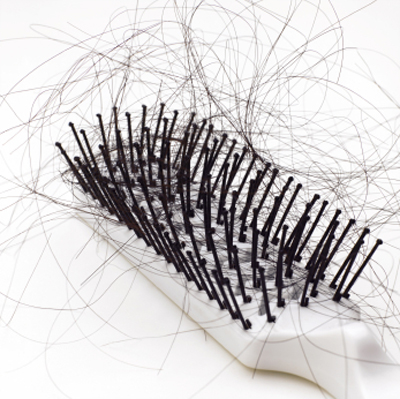Gene Test For Hair Loss
17.09.2009 in HAIR LOSS SCIENCEHAIR LOSS FACTS: For many people, hair loss is simply an inevitable part of life. Alan Bauman, M.D., a board-certified hair restoration specialist in Boca Raton, Fla., says about 100 million people in the United States have hair loss 60 million men and 40 million women.
By age 35, 40 percent of men have noticeable hair loss and 65 percent have noticeable hair loss by age 60. Dr. Bauman says for both men and women, hair thinning is not usually noticed until 50 percent of a person’s hair has already fallen out.
Americans spend more than $1 billion a year on treatments for hair loss.
IS “BALD” IN YOUR FUTURE? HairDX, a biotech company, has launched the first genetic hair loss test for men and women to let them know if they are at high risk for future hair loss.
“This is exciting because it’s the first lab test for hair loss,”said Dr. Bauman. “You can take the test in your teenage years and find out what your percentage of going bald will be by the time you are 40.”
The test determines your fate by measuring DNA obtained from a cheek swab. The swab is mailed off to the company to be analyzed. A high risk result means the person has a 60 percent chance severe baldness by age 40. A low risk result means a person has an 80 percent chance of having a healthy head of hair by age 60.
The test measures DNA on the X chromosome, which is inherited by the mother. One of the genes that researchers know is linked to hair loss is the androgen receptor, which is found on the X chromosome. Dr. Bauman says there are probably many factors and genes from both sides of the family that are involved with hair loss, but the androgen receptor gene is a great place to start.
THE BENEFIT OF KNOWING: Dr. Bauman said, “Hair loss is certainly today, optional … meaning that you can choose not to have hair loss if you undergo therapy and treatment. Many people in the general public don’t really know that treatments exist — effective treatments.”
Hair loss treatments that experts say work: 1) Finasteride (also known as Propecia) — a daily medication that works in nine out of 10 men. Five out of six men will keep the hair they have when started on the medication and two out of three will re-grow some hair they have lost. Dr. Bauman says, “If you are a man and you have risk of hair loss and you go on Propecia today, you have a 90 percent chance in five years to look the same or better than you do right now.”
2) Minoxidil (also known as Rogaine) — a topical liquid for the scalp that stimulates hair follicles to grow thicker and stronger. Dr. Bauman says about 60 to 70 percent of people get a response from Minoxidil.
3) Low level laser therapy — creates a photochemical condition in the scalp to create more energy for the follicles to grow a better quality hair. It’s been shown to improve hair quality, thickness and density.
4) Hair restoration surgery — this can work, but be sure you’re getting it from a board-certified hair restoration specialist.
5) Nutritional modification — protein is a building block for hair, so a diet deficient in protein can cause hair loss. Eating enough could slow it down.
Do you have Hair Loss Problems, read our Hair Loss Help









